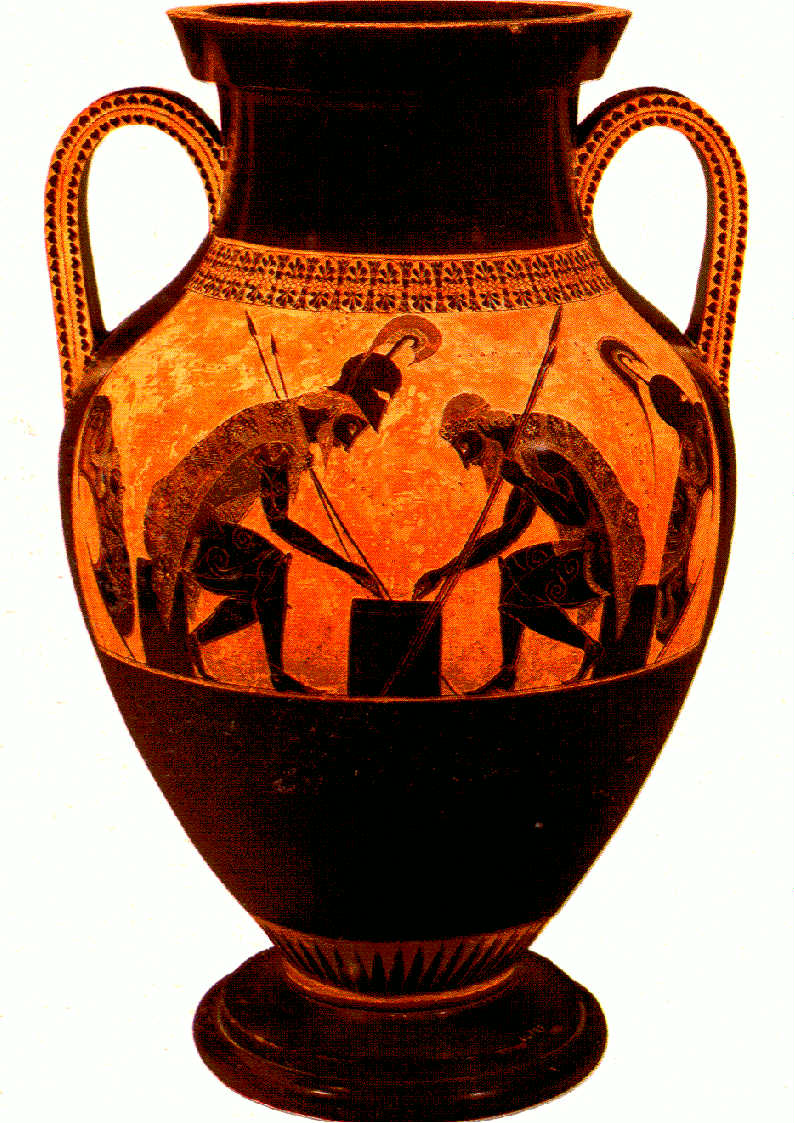Semantics: The branch of linguistics that studies the meaning of words, their historical and psychological development, their connotations, and their relation to one another.
Style: The consideration of style has two purposes: 1) An evaluation of the sum of the choices an author makes in blending diction, syntax, figurative language, and other literary devices. Some authors' styles are so idiosyncratic that we can quickly recognize works by the same author (or a writer emulating that author's style). Compare, for example, Jonathan Swift to George Orwell or William Faulkner to Ernest Hemingway. We can analyze and describe an author's personal style and make judgments on how appropriate it is to the author's purpose. Styles can be called flowery, explicit, succinct, rambling, bombastic, commonplace, incisive, or laconic, to name only a few examples. 2) Classification of authors to a group and comparison of an author to similar authors. By means of such classification and comparison, one can see how an author's style reflects and helps to define a historical period, such as the Renaissance or the Victorian period, or a literary movement, such as the romantic, transcendental, or realist movement.
Subject Complement: The word (with any accompanying phrases) or clause that follows a linking verb and complements, or completes, the subject of the sentence by either 1) renaming it or 2) describing it. The former is technically called a predicate nominative, the latter a predicate adjective. This term is occasionally used in a multiple-choice question.
Subordinate Clause: Like all clauses, this word group contains both a subject and a verb (plus any accompanying phrases or modifiers), but unlike the independent clause, the subordinate clause cannot stand alone; it does not express a complete thought. Also called a dependent clause, the subordinate clause depends on a main clause, sometimes called an independent clause, to complete its meaning. Easily recognized key words and phrases usually begin these clauses -- for example: although, because, unless, if, even though, since, as soon as, while, who, when, where, how, and that.
Syllogism: From the Greek for "reckoning together," a syllogism (or syllogistic reasoning) is a deductive system of formal logic that presents two premises (the first one called "major" and the second "minor") that inevitably lead to a sound conclusion. A frequently cited example is as follows:
major premise: All men are mortal.
minor premise: Socrates is a man.
conclusion: Therefore, Socrates is mortal.
Symbol/Symbolism: Generally, anything that represents, stands for, something else. Usually, a symbol is something concrete -- such as an object, action, character or scene -- that represents something more abstract. However, symbols and symbolism can be much more complex. One system classifies symbols in three categories: 1)
Natural symbols use objects and occurrences from nature to represent ideas commonly associated with them (dawn symbolizing hope or a new beginning, a rose symbolizing love, a tree symbolizing knowledge). 2)
Conventional symbols are those that have been invested with meaning by a group (religious symbols such as a cross or a Star of David, national symbols such as a flag or an eagle; or group symbols such as skull and crossbones for pirates or the scales of justice for lawyers). 3)
Literary symbols are sometimes also conventional in the sense that they are found in a variety of works and are generally recognized. However, a work's symbols may be more complicated as is the whale in
Moby Dick and the jungle in
Heart of Darkness. On the AP exam, try to determine what abstraction an object is a symbol for and to what extent it is successful in representing that abstraction.
Syntax: The way an author chooses to join words into phrases, clauses, and sentences. Syntax is similar to diction, but you can differentiate them by thinking of syntax as the
groups of words, while diction refers to the
individual words. On the multiple-choice section of the AP exam, expect to be asked some questions about how an author manipulates syntax. On the essay section, you will need to analyze how an author's manipulation of syntax produces effects.
Theme: The central idea or message of a work, the insight it offers into life. Usually, theme is unstated in fictional works, but in nonfiction, the theme may be directly stated, especially in expository or argumentative writing.
Thesis: In expository writing, the thesis statement is the sentence or group of sentences that directly expresses the author's opinion, purpose, meaning, or proposition. Expository writing is usually judged by analyzing how accurately, effectively, and thoroughly a writer has proven the thesis.
Tone: Similar to mood, tone describes that author's attitude toward his/her material, the audience, or both. Tone is easier to determine in spoken language than in written language. Considering how a work would sound if it were read aloud can help in identifying an author's tone. Some words describing tone are: playful, serious, businesslike, sarcastic, humorous, formal, ornate and somber.
Transition: A word or phrase that links different ideas. Used especially, although not exclusively, in expository and argumentative writing. Transitions effectively signal a shift from one idea to another. A few commonly used transitional words and phrases are: furthermore, consequently, nevertheless, for example, in addition, likewise, similarly, and on the contrary.
Understatement: The ironic minimalizing of fact, understatement presents something as less significant than it is. The effect can frequently be humorous, and emphatic. Understatement is the opposite of hyperbole.
Wit: In modern usage, intellectually amusing language that surprises and delights. A witty statement is humorous, while suggesting the speaker's verbal power in creating ingenuous and perceptive remarks. Wit usually uses terse language that makes a pointed statement. Historically, wit originally meant basic understanding. Its meaning evolved to include speed of understanding, and finally (in the early seventeenth century), it grew to mean quick perception including creative fancy.













